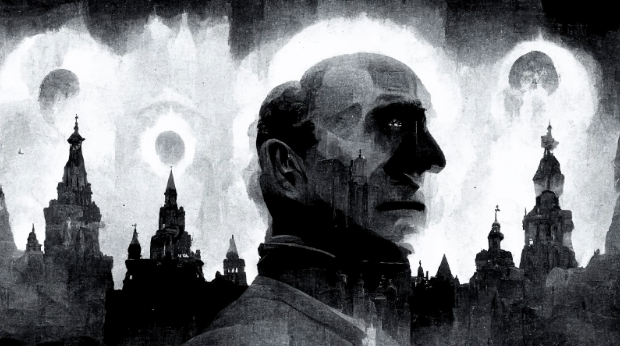The fundamental origins of libertarianism’s earliest, most influential philosophies and ideals are never short of a buoyant discussion — and a few diverging opinions.
The origin of libertarianism
To some, early libertarian virtues can be seen in Confucius’s disciple Mencius, who once wrote that “in a nation, the people are the most important, the state is next, and the ruler is the least important,” as Reason’s Brian Doherty once revealed.
To others, qualities of libertarianism can be traced back centuries to the Chinese philosopher Lao Tzu, who is purported to have once said, “Without law or compulsion, men would dwell in harmony.”
And still to others, the roots of modern libertarianism are found in the Age of Enlightenment and, ultimately, the Declaration of Independence, which unambiguously states that “all men are created equal” and decrees individuals’ rights to “life, liberty and the pursuit of happiness.”
Irrespective of where libertarianism’s earliest ideas officially commenced, however, it has become evident that, in its contemporary form, it is the spectacular culmination of a variety of philosophical contributions over the centuries allocating one denominator: liberty.
Untold numbers of scholars, philosophers, writers and activists have all, over a substantial duration of time and from every corner of the world, contributed to refining, defining, and disseminating various but equally significant conceptions of liberty.
But with such a wide array of inspirations, why, then, is libertarianism so routinely shelved under the constraining parasol of “the right,” as so often is the case? Indeed, many conservatives have even come to presumptuously regard the average libertarian as a stepchild to their cause.
And while conservatives and libertarians may rhetorically divvy a number of surface commonalities, does this mechanically render libertarians conservatives? Or corroborate conservatism’s modern incarnation? Of course not.
Who is the modern libertarian?
Subsequently, I would argue that the modern libertarian not only ideologically resides contrary to the modern conservative, but ideologically resides in closer proximity to the founders than the modern conservative.
In fact, as economist Murray Rothbard once pointed out, the word “conservative” wasn’t even a fixture in American politics until the publication of Russell Kirk’s Conservative Mind in 1953.
To ascertain the immense difference between the founders and conservatism — or “new right” — one only has to peruse the founders’ own words. After all, it was the U.S.’s first president, George Washington, who once famously declared: “The great rule of conduct for us, in regard to foreign nations, is in extending our commercial relations, to have with them as little political connection as possible.”
Likewise, it was the U.S.’s third president, Thomas Jefferson, that warned of U.S. interventionism in his 1801 inaugural address, proclaiming “peace, commerce, and honest friendship with all nations, entangling alliances with none.”
Libertarians vs. conservatives
Thomas Paine who, in Common Sense, repeatedly condemned foreign alliances, only hesitantly agreed to an alliance with France after it became painfully apparent that the Revolutionary War could not be won otherwise.
Yet, in spite of such evidence, many conservatives still argue that foreign interventionism has remained an integral part of the American spirit from the very beginning.
The Heritage Foundation, for example, invokes the Tripolitan War under Jefferson as an example of early U.S. interventionism and disparages non-interventionists by saying, “Strict non-interventionists would apparently object to this historical deployment of the Marines on foreign soil to ensure Americans’ safety in another hemisphere; for the doctrine of non-interventionism is conspicuously dogmatic and inflexible.”
However, notwithstanding the overly simplistic moral equivalency between hunting down a handful of pirates and conducting a $100 billion war in a foreign country for over a decade, The Heritage Foundation creatively misleads their readers on a number of fronts.
First, there is a clear philosophical difference between non-interventionism and outright passivism — the former permitting the legitimate defense of life, property, and sovereignty.
Second, the pasha both attempted to blackmail Jefferson for $225,000, followed by cutting down the flagstaff in front of the U.S. Consulate, in effect, declaring war on the United States. And third, when Jefferson did respond, he still did so with congressional approval.
But does this mean the founders were always perfect in their understanding and implementation of liberty? Certainly not.
However, while the founders themselves were far from perfect, it does not negate the fact that many of their ideas have served as catalysts to becoming a freer, safer, and more prosperous society.
The case against foreign interventionism
As David Boaz of the Cato Institute underscored in his 1997 book Libertarianism, “Individualism, natural rights, and free markets led logically to agitation for the extension of civil and political rights to those who had been excluded from liberty…”
As a result, “slavery and serfdom were abolished throughout the Western world within a century” after the Declaration of Independence.
In other words, while everyone may not have been free from bondage, or free to vote at the time of the Declaration of Independence, such ideas did become contagious and effectively took dominance over time.
Moreover, while atrocious anomalies can, indeed, be found throughout U.S. history where the U.S. failed to live up to its own rhetoric both foreign and domestic, it doesn’t mean such hypocrisies are moral, justified, or sanctioned for replication.
It is often overlooked, albeit conveniently, by conservatives that the welfare state in its primacy was not always perpetuated by “the right” or Republicans, but rather progressives.
Indeed, virtually every major war after the Civil War and until the 1980’s was waged by a Democratic president.
The “old right,” on the other hand — for example, Robert Taft, Howard H. Buffett, Garet Garrett, John T. Flynn, F.A. Harper and Leonard E. Read — rabidly opposed such foreign interventionism.
The development of the new right
These philosophies, however, were essentially plundered and extinguished with the emergence of “new right” intellectuals such as William F. Buckley, Irving Kristol, and dogmatic absolutists such as Jerry Fallwell who not only tactically fused the “religious right” and Republican Party — but rigorously peddled foreign interventionism and social pigheadedness through publications like National Review.
But if the founders couldn’t be classified as conservatives, what could they be classified as? The truth is that the founders were, in essence, classical liberals. Which naturally lends itself to an additional question: Which ideology is classical liberalism closer to today, modern libertarianism or modern conservatism?
And it is in this sense that libertarianism is not the stepchild of conservatism, but rather — if it must be this way — conservatism that is the stepchild of libertarianism, and a fantastically repulsive and wayward stepchild at that.
The flaws of modern conservatism
Even William F. Buckley Jr. in his final years eventually grew to condemn excessive foreign interventionism and brazenly question the validity of the modern right’s uncontrollable propensity to try and export democracy, stating that, “The reality of the situation is that missions abroad to effect regime change in countries without a bill of rights or democratic tradition are terribly arduous.”
And he wasn’t alone. Barry Goldwater also grew to disdain modern conservatism and its ardor for theological rigidity; even warning the “new right” before he passed: “Do not associate my name with anything you do. You are extremists, and you’ve hurt the Republican Party much more than the Democrats have.”
Suffice it to say, both eventually came to recognize how badly “the right” had lost its way. Indeed, Noam Chomsky probably has more in common with the founders than Sean Hannity or Rick Santorum ever have or will; for conservatism, at its muddled nucleus, is not an ideology that promotes or stimulates liberty, but rather constricts and prohibits it.
It is an ideology that presupposes big government ought to subjectively legislate what it egotistically deems moral; an ideology that luxuriates in the balmy green luminosity of fascist corporatism; and an ideology that irrepressibly and ravenously aches for the ghastly tang of overpriced extraneous meddling — none of which the libertarian will ever, breathing or deceased, compliment or sanction.
To read more about Student For Liberty’s pillars, check out more blogs by clicking on the button below.
Written by Brandon Loran Maxwell
This piece solely expresses the opinion of the author and not necessarily the organization as a whole. Students For Liberty is committed to facilitating a broad dialogue for liberty, representing a variety of opinions.








